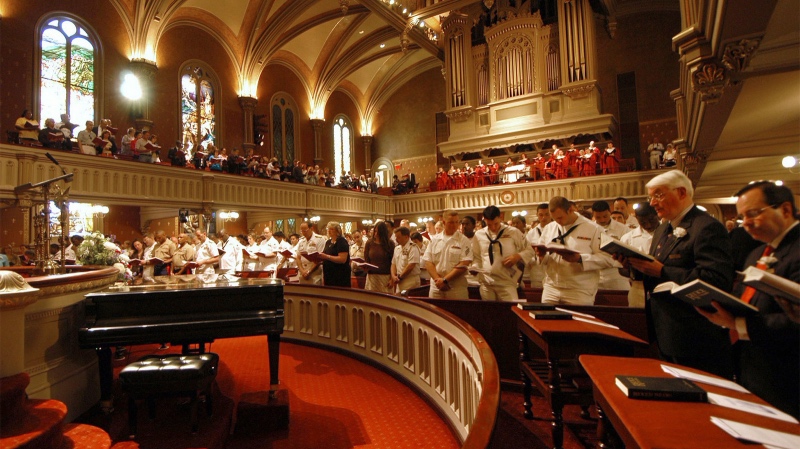America is more religious than Europe, almost everyone agrees.
Two-thirds of US Christians pray daily, compared with a median of just 18 per cent of Christians across 15 countries in Europe, to cite just one recent survey.
But there is disagreement brewing among sociologists over whether the intense religious devotion that has long characterised a segment of the United States is impervious to anti-religious trends in Europe, where all the markers of faith have dramatically slipped over the past few decades.

People worship at Marble Collegiate Church in New York. PICTURE: Courtesy of Creative Commons
In dueling articles posted to the journal Sociological Science, two groups of scholars have sized up decades’ worth of survey data generated by the massive General Social Survey stretching back to 1973 – and arrived at different conclusions.
At the heart of the throwdown dividing sociology of religion circles is the question: Is American religion exceptional?
Exceptionalism is the deep-seated conviction that the US marches to a different drummer. While some argue this distinctiveness is proof it has been blessed by God, most scholars who use the term mean that the US is simply different.
In an article published in Sociological Science last week, David Voas and Mark Chaves, of University College London and Duke University, respectively, maintain that US religious devotion may be higher than in other Western countries but it too is slowly declining and essentially no different from other developed nations in its growing secularisation.
On the other side are two graduate students, one at Harvard and the other at Indiana University, who argue the most devout Americans have remained so and the decline is coming from those with moderate religious habits.
“There’s a short uptick during [Ronald] Reagan’s presidency, but other than that, it’s been steady from the 1970s to today,” said Landon Schnabel, a PhD candidate at Indiana.
Voas and Chaves counter that even the intensely religious segment of the American population is shrinking. Just as Europe has become more secular, so too has America, just at a slower rate.
“The fact of the matter is, even on the intense religious category the US is declining, if very slowly,” said Chaves, a professor of sociology and religious studies at Duke University.
Both teams examined five indicators of intense religion: strong religious affiliation, more than weekly attendance at religious services, Biblical literalism, affiliation with an evangelical religious group and praying multiple times per day.
Voas and Chaves argue that between 1973 and today there’s been a significant drop in religious Americans’ responses in three key indicators: affiliation, the number of religious services people attend each week and their belief that the Bible is the literal word of God.
For example, only 6.6 pe rcent of Americans attended church more than once a week between 2012 and 2016, a drop from eight per cent in 1973.
Asked if “the Bible is the actual word of God and is to be taken literally, word for word,” 31 percent said yes between 2010 and 2016, a drop from 35 per cent between 1984 and 1990.
The reason for the overall drop? It’s generational, argue Voas and Chaves.
“Each successive birth cohort is less intensely religious than the one before,” they wrote, “and there is little sign of people becoming more intensely religious with age or over time.”






